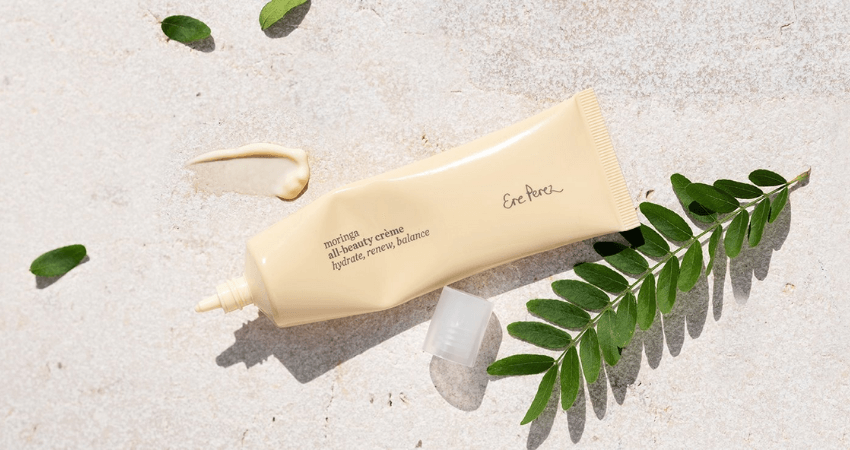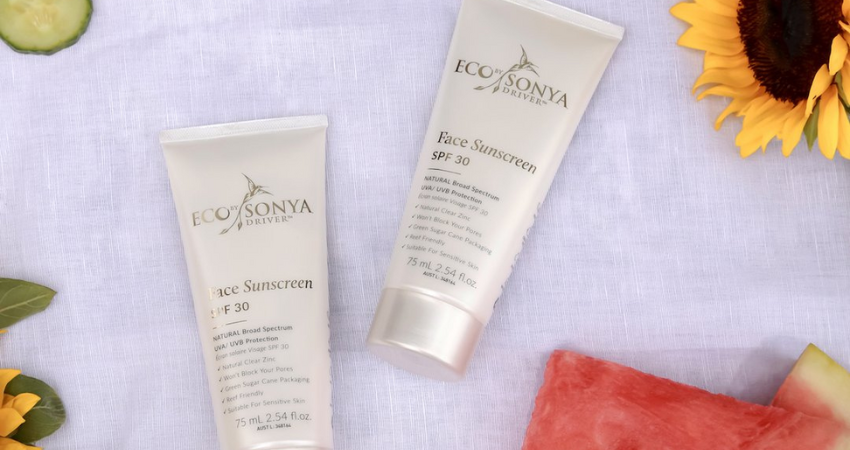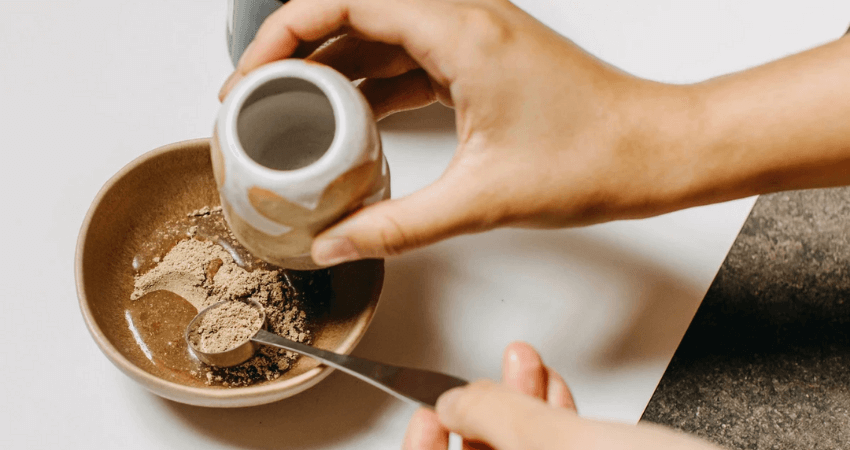Having a regular skincare routine is important for maintaining your healthiest and best looking complexion. This ultimate guide to building a skincare routine will help you build a perfect regimen that meets your unique skincare needs and goals.
We all want to look our best, but most of us just don't have the time to do it. Skincare routines are important for keeping your skin looking fresh and healthy, and we're here to help you do that as effectively as possible. Using products that are specifically made for your skin type will help keep your complexion glowing and youthful. A good skincare routine will also help with acne, dryness, eczema, psoriasis, rosacea, wrinkles - the list goes on!

If you’re new to natural skincare, you might be wondering why you even need a skincare routine. There are many benefits to having a consistent approach to skincare. Firstly, skin is the human body’s largest organ, so it’s important to treat it with the same care we treat our other, internal organs. Having a consistent skincare routine will ensure the health of your skin and prevent skin conditions, irritations and concerns. Having healthy skin means balancing its oil, bacteria and hydration levels. We also shed skin cells daily, so having a consistent routine is key if you want to feel the benefits and see the results of skincare.
Maintaining a skincare routine is also important because everyone’s skin has different needs, and these needs can change over time. You might have heard of these different needs expressed in as skin ‘types’: oily, combination, dry, normal and sensitive. When you build a skincare routine and start taking regular care of your skin, you get more in tune with your skin type and its problem points. Although you might not have any major skin concerns now, a skincare routine will help prevent any from forming. Think regular SPF use to prevent sun damage, wrinkles and the risk of skin cancer, or a regular anti aging serum to boost your skin’s elasticity and prevent fine lines. Taking a proactive or preventative approach to these common skin concerns is not only healthier and more effective but will save you money in the long term should you choose to seek/or need treatment for them later. A bonus benefit to having a skincare routine is that it boosts your confidence. It’s long since been proven that taking good care of yourself is a great way to improve self esteem and skincare is no exception.
.png)
A basic skincare routine is a great way to get used to using skincare regularly and finding what your skin needs. The goal of any skincare routine is to get your skin functioning at its best and to troubleshoot or target any specific areas you might want to work on. So, what is a basic skincare routine? Dermatologists largely agree that the main products any basic skincare routine should have are a cleanser, toner and moisturiser.
Cleansing is the most basic and essential step in your skincare routine - it really can’t be skipped. A cleanser is usually formulated specifically for the skin on the face; a cleanser will work to gently remove impurities from the skin while retaining its natural moisture levels. Dermatologists recommend washing your face twice a day, morning and night to avoid clogged pores and dullness. Tip: if you wear makeup, you’ll first want to remove that with makeup remover or micellar water before cleansing.
A toner or rose water is technically an optional step, but it works well if you’ve got some more specific skin concerns that you’d like to target. A toner is a liquid product that removes the last of the impurities from your skin, evens your complexion and gives you an extra boost of nutrients. A toner is used after cleansing and is traditionally applied using a cotton pad, although that can use a lot of wasted product. Instead using clean hands and applying it directly to the skin with a swiping motion is preferred. Lastly, moisturiser - the other essential step in any basic skincare routine.
A moisturiser works to lock in hydration, by creating a barrier to water loss, and soften the skin’s texture. A moisturiser can come in a few different formulas - gel, cream, lotion, balm - which depends on your skin type and needs. A moisturiser should be applied to freshly washed skin morning and night.

SPF is one of the most important parts of your skincare routine. It's the only way to protect yourself from sun damage and skin cancer, and it's the easiest way to prevent premature aging and maintaining a healthy complexion overall. The UV rays, especially in Australia, can be harmful all year long. You should always use SPF when you're going outside, but you should also be sure to wear it every day in your daily life.
The best part is that it doesn't have to be complicated or time consuming - there are so many products out there that are designed to make this easy for you. If you don't like feeling greasy or sticky, some moisturisers contain SPF already in them. You can also find tinted moisturiser or foundation with SPF in it that will give your face a nice glow while protecting your skin! A face sunscreen should be applied after your moisturiser, as the final step in your skincare routine.
What order to do your skincare routine in can vary depending on how many and what types of products you’re using. For a basic rule of thumb though, you should apply products in order of consistency. Meaning, the thinnest products should be applied first, followed by the medium and then thicker products. For example, cleanser, toner (if using), serum, moisturiser, sunscreen.
.png)
There are a few factors that go into finding your perfect skincare routine. The First and most basic step is understanding your skin type.
Dry skin: tends to feel tight and is prone to flaking, redness, and fine wrinkles. *
*Dehydrated skin: is different to dry skin as it is not a permanent skin type but rather a temporary skin state/condition. Dehydrated skin lacks water content and can be fixed with high water content products and drinking more fluids.
Oily skin: tends to get oily throughout the day, has larger pores and is more prone to acne, blemishes and blackheads
Combination skin: tends to be oily in the ‘T-Zone’ (forehead and nose) but normal to dry in the cheeks area.
Sensitive skin: is more delicate, and often gets irritated easily with reactions, redness and rashes.
Normal skin: is rare! And means the pores are not noticeable, oil production is neither too little or too much and the skin tends to be easy to manage (ie. Not easily irritated).
Mature skin: a normal part of life is ageing, and this is certainly a big topic of conversation when it comes to skincare, as the more visible signs of ageing occur on our skin. Mature or ageing skin is usually used to describe skin that is naturally losing its elasticity and collagen levels - resulting in more fine lines, wrinkles and a more delicate skin texture.

The next step, after you’ve figured out your skin type, is to identify your skin concerns. These might relate to your skin’s state or condition. Some of the common skin concerns or target areas include acne and blemishes, wrinkles and fine lines, hyperpigmentation, dullness, and texture. Targeting specific skin concerns usually involves using a serum. A serum has a fine molecular structure so it can seep into the deeper layers of our skin and provide a strong dose of nutrients to target skin concerns. A face mask will also help visibly treat and improve your skin and can be used 1-2 times a week.
A few other factors to consider when deciding on your perfect skincare routine relate to your lifestyle. If you spend a lot of time outside, you might opt for a higher SPF sunscreen. If you work in an office you might choose to keep a hydrating mist at your desk, as heating/cooling systems dry out our skin. And if you live in a polluted area, you might choose a specific antioxidant serum to protect your skin.
You don’t need to have a separate skincare routine for winter, but there are a few things to consider during the colder months. Firstly, the cold air and the indoor heating dry out our skin, so it’s important to focus on hydration during winter. Using a slightly heavier cream moisturiser in winter can be a good idea to prevent moisture and hydration loss. If you already use a cream moisturiser, try using a night cream as a day cream. You can see our top winter skincare product recommendations here.
Having a separate night time skincare routine is a good idea if you want to get serious about improving and caring for your skin. At night, you can use heavier lotions, serums and oils that have more active ingredients and can get to work while you sleep. Having a separate routine also means you can add in more active ingredients and steps to your overall regime. For example, you might choose to use an anti-pollution serum in the daytime and then a separate anti aging or hydrating serum at night. Facial oils are also a great alternative to cream or lotion products as they contain lots of skin nourishing properties but are best applied overnight.
.png)
Wondering what your next steps should be? If you're completely new to skincare we suggest starting out with the basics: cleanser (plus makeup remover if needed) and moisturiser. If you're looking to step up your skincare game, we suggest using a toner after you cleanse and using an exfoliator once or twice a week. Trying treatments might also be something you'd like to consider if you have acne or other skin concerns. If you really want to get the most from your routine and don't mind a few extra steps, we recommend using a serum morning and night (after cleansing, before moisturising) and using a face mask once a week. Just remember building a skincare routine is a process of trial and error. You need to test out products to see what works for your skin and use them consistently for a few months to see if they’re effective or not. Luckily, we've put some product recommendations together to get you started. Shop them below.
As we age, our skin changes - and if we don't give it the right treatment now, those changes can become permanent! A regular skincare routine helps prevent wrinkles and other signs of aging by keeping our skin hydrated and moisturised so that cells can regenerate properly.
RECOMMENDED PRODUCTS